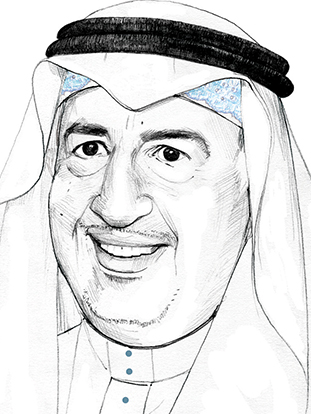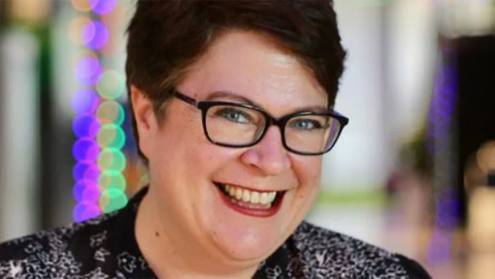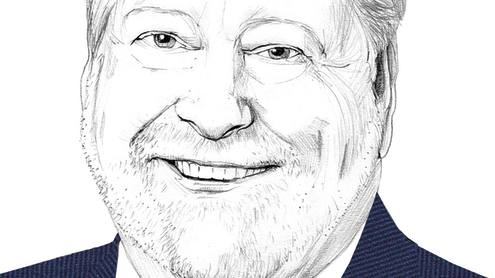Trade lies at the heart of Islamic economics. As lending money in Islamic economics is only acceptable when it is done for free as an act of charity, sharia-compliant financing revolves mainly around trade operations or equity investments. For instance, one of the most used instruments in Islamic finance – an industry worth more than $1800bn today – is murabaha, which is a combination of two different trade operations with different tenures.
This explains why Islamic trade finance products were proposed by the Islamic Development Bank (IsDB) just three years after it started operating. Indeed, while the majority of multilateral development banks were initially unwilling to finance international trade – assuming that their role should be restricted to infrastructure and social sector financing – the IsDB has financed international trade operations since 1977.
Inheriting IsDB’s trade activities in 2008, International Islamic Trade Finance Corporation (ITFC), a member of IsDB Group, has continued to provide sharia-compliant financing to its member countries for a total amount of more than $70bn to date. This financing has a direct impact on the trade flows of its 57 member countries, both among themselves and with the rest of the world.
However, this support is still insufficient. The trade finance gap remains enormous, with unmet global demand estimated at about $1500bn in 2017, 15% of which is in Africa. In addition, the geographical shift of global poverty, from most parts of Asia to Africa over the past 20 years, presents additional challenges. Three out of four people categorised as poor live in this region, which makes up 47% of ITFC’s member countries. Now that trade is acknowledged as an engine for inclusive economic growth and poverty reduction, while contributing to the promotion of sustainable development, according to the UN’s 2030 Agenda for Sustainable Development, it is surely the time to do more.
Ways to lift trade obstacles
In response to these trends, ITFC has embarked on the utilisation of products and structures that fundamentally solve problems beyond financing the trade of its member countries. These structures and products strategically engage various categories of stakeholders into the corporation’s newly integrated trade finance and trade development activities and will produce numerous direct beneficial effects for our member countries in a sustainable manner. Three concrete examples are worth bringing to light: the ITFC Sovereign Energy Fund, the structured trade finance for coffee exports in Indonesia, and the expected deployment of the Islamic Agricultural Production Contract (Salam) in our operations. All contribute in their own right to lifting key obstacles to trade and bringing about poverty reduction in member countries: the deficit of trade finance, financial inclusion and working capital financing.
The imbalances between trade finance supply and demand have reinforced the business case of trade finance funds and explain, among other reasons, their resilient growth to fund trade flows globally. Most banks have reduced their trade finance activities, as a consequence of tighter regulatory requirements, including Basel III, and as a diversion away from volatile commodities markets, including oil.
Additionally, the capacity of local banks to cater for such financing needs for governments and public institutions remain weak. Against this backdrop, the demand for trade finance remains high in the Organisation of Islamic Co-operation (OIC) countries, particularly for these very commodities fuelling economic growth. The imbalances between trade finance supply and demand have reinforced the business case of trade finance funds and highlights the need for ITFC to offer innovative solutions to clients in member countries.
New sources of capital
With a sovereign energy financing portfolio estimated at $4bn in 2017, or 75% of its total portfolio, ITFC is now looking forward to setting up the first ever sharia-compliant energy sovereign fund, the ITFC Sovereign Energy Fund. Such an initiative serves not only a diversification strategy and an innovation focus of the Islamic finance industry, but also offers a geographically diversified portfolio of trade finance transactions in a single offering – namely an asset class to financial institutions looking to invest their cash and make short-term investments. One of the most interesting aspects of the fund is that it will act as a catalyst by seeking to enter into new energy markets such as natural gas and electricity. It will also be a catalyst of new sources of capital and a provider of liquidity for the OIC countries.
Meanwhile, Indonesia is the fourth largest coffee producer and exporter in the world. Apart from the smallholders, the country's co-operatives and small and medium-sized enterprises (SMEs) play a vital role along the coffee supply chain. In most cases, it is the SMEs who have the logistics capacity and business relationships with the foreign buyers. Access to financing has been a perennial concern for this segment of players in the coffee industry.
The twin challenges faced by the Indonesian coffee industry strike a key chord with ITFC’s mandate. Improving the lives of 2 million farmers and injecting much-needed liquidity into the coffee supply chain bodes well with our mandate to provide capacity building and extend trade financing. Under the current proposal, ITFC will endeavour to extend financing to the smallest SMEs managed by traders and processors in the coffee industry. This segment presents limited quality financial information and statements, making financial evaluation a challenge. Besides, these SMEs have no collateral other than the coffee they possess.
Hence, structured trade finance by means of warehouse financing arrangements is a natural fit in these circumstances. It allows us to provide a large volume of liquidity in the sector, for the benefit of numerous SMEs, while containing the risk to minimal levels. Besides, it has been proven that co-operatives are able to reduce the influence of intermediaries, increase their negotiation power and obtain higher prices for their product. With this financing arrangement, ITFC is providing financing to the 'unbankable' and hence achieving the goal of financial inclusion that has a huge developmental impact on the livelihoods of the farmers, co-operatives and exporters.
Food insecurity
Although the Salam contract has long been part of traditional trade finance offerings globally, ITFC intends to integrate it with its conventional offering to support the sustainable development of its clients. Achieving food security is one of the major developmental problems of the present and the future, and the challenges are gigantic. In OIC countries, 166 million people are undernourished, the food production per capita index stalls at 10% versus a world average of 15%, and a stunning 28 out of the 54 low-income food deficit countries are OIC member countries.
To address food insecurity, adequate mechanisms and tools to link farmers to markets are required. Agricultural producers in rural areas live off their production for subsistence. In the west Africa region alone, ITFC finances agricultural pre-export and export transactions for governments and private institutions that directly involve about 1.7 million farmers on a yearly basis. These farmers need working capital financing to supply large quantities to these public and private institutions.
In this regard, ITFC plans to integrate contract farming products to trade finance directly, to cater to the working capital needs of small farmers. Technically, this will translate into a mechanism whereby the farmers will be able to sell their harvest forward against an agreed-upon spot payment. This mechanism will address the farmers' working capital requirements, including income, running and maintenance costs and charges, and protect them against risks not mitigated by conventional contract farming. Indeed, producers will not be exposed to the potential insolvency of bulk buyers, unlike in conventional contracts where payment occurs at delivery.
Similarly, as producers under Salam receive payment on the spot, they would not be exposed to the risks that may result from payment delays, including costs increases. Salam holds the potential to contribute to the state of food security in the OIC, double agricultural productivity and income of small-scale food producers.
Hani Salem Sonbol is the CEO of the International Islamic Trade Finance Corporation.







